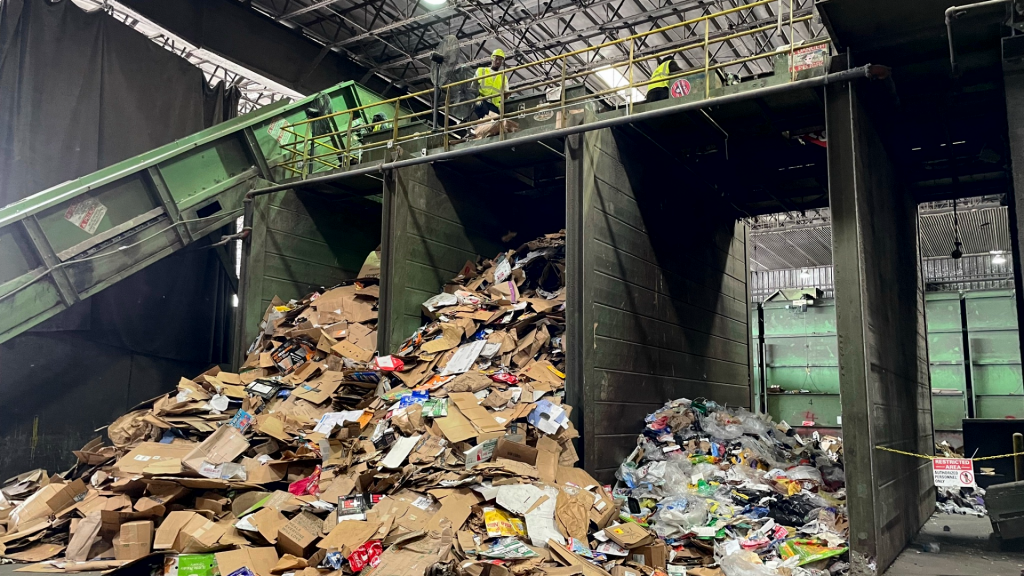
Cardboard is sorted at the TFC Recycling material recovery facility in Chester, Virginia.
Making new products from recycled materials helps save energy and precious natural resources. A few facts:
Cardboard
- Recycling cardboard only takes 75% of the energy required to make new cardboard. The same cardboard can be recycled seven times.
- Recycling one ton of cardboard saves 390 kilowatt hours of energy, 46 gallons of oil and over nine cubic yards of landfill space.
Steel and Aluminum
- Aluminum is infinitely recyclable. Making a beverage can from recycled aluminum reduces energy use and greenhouse gases by more than 90% compared to making one from scratch.
- Recycling a single aluminum can saves enough energy to power a TV for 3 hours.
- Making a food can from recycled steel means 75% less energy and greenhouse gas emissions compared to using virgin steel.
Electronics and Batteries
- Recycling 1 million laptops would save the energy needed to power 3,600 U.S. homes for a year.
Glass
- For every ton of glass that is recycled, over one ton of natural resources are saved- including sand, soda ash, limestone, and feldspar.
- Recycling one glass bottle saves enough energy to light a 100-watt lightbulb for four hours.
Plastic
- Recycling one ton of plastic saves the equivalent of 1,000–2,000 gallons of gasoline.
- Recycling one ton of plastic bottles saves the equivalent energy usage of a two-person household for one year.
Paper
- Recycling one ton of paper saves 7,000 gallons of water and 17 mature trees.
